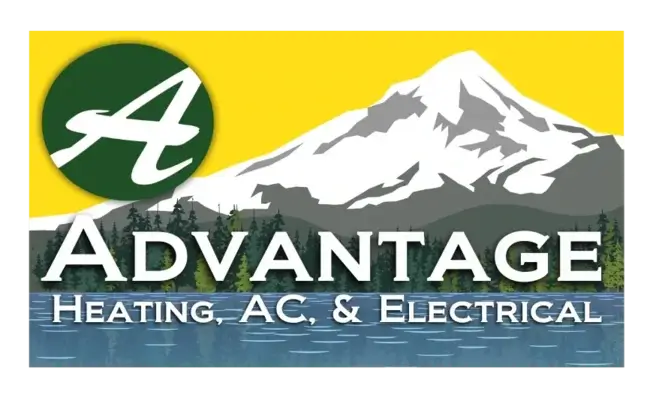Maintaining healthy indoor air quality is crucial for the well-being of your home’s occupants, and air filters are key players in this objective. Selecting the right air filter for your HVAC system, however, can be confusing, with acronyms like MERV appearing alongside various numbers and ratings.
To help you make sense of it all, Advantage Heating & Air Conditioning, an expert provider of air conditioning and heating repairs and replacements in Marion, Polk, and Washington counties, has prepared this comprehensive guide.
In this article, we’ll delve into MERV ratings and explain their relevance in evaluating air filters. We will also discuss how understanding these ratings and selecting the appropriate air filter can improve your home’s air quality and HVAC efficiency. Equip yourself with essential knowledge to make informed decisions when choosing an air filter.
1. What are MERV Ratings? Understanding the Basics
MERV stands for Minimum Efficiency Reporting Value, a rating system developed by the American Society of Heating, Refrigerating, and Air Conditioning Engineers (ASHRAE) to evaluate the effectiveness of air filters in HVAC systems.
MERV ratings range from 1 to 20, with higher numbers indicating better filtration performance. These ratings help consumers decide when selecting air filters based on how efficiently they can capture airborne particles of different sizes.
2. How MERV Ratings are Determined: Particle Size and Efficiency
Air filters are evaluated for their ability to capture particles ranging in size from 0.3 to 10 micrometers, including common household pollutants like dust, pollen, mold spores, and pet dander. A filter’s performance is tested against particles in three size ranges: E1 (0.3-1 micrometer), E2 (1-3 micrometers), and E3 (3-10 micrometers). The MERV rating is assigned based on the filter’s average removal efficiency within these size categories, as well as its ability to maintain consistent performance over time.
3. Choosing the Right MERV Rating for Your Home
Understanding MERV ratings can help you find the right balance between filtration efficiency, airflow, and cost for your home’s specific needs. Here’s a breakdown of common MERV ratings and their recommended applications:
– MERV 1-4: These low-efficiency filters provide minimal filtration, primarily capturing larger particles (greater than 10 micrometers). They are typically found in inexpensive fiberglass or washable filters and are not recommended for individuals with allergies or respiratory issues.
– MERV 5-8: These medium-efficiency filters can capture particles as small as 3 micrometers, including mold spores, pet dander, and pollen. They are generally suitable for most residential applications and help alleviate allergy symptoms while maintaining good airflow.
– MERV 9-12: High-efficiency filters in this range can capture particles between 1 and 3 micrometers, making them suitable for households with more severe allergies or asthma. However, increased filtration efficiency can sometimes lead to reduced airflow, which may necessitate upgrading your HVAC system to handle the increased resistance.
– MERV 13-16: These filters can capture ultrafine particles as small as 0.3 micrometers, including bacteria and tobacco smoke. They are commonly used in hospitals, clean rooms, and other environments where strict air quality control is required. However, their high resistance to airflow can cause strain on residential HVAC systems and are not recommended for typical homes.
– MERV 17-20: Also known as HEPA filters, these ultra-high-efficiency air filters can remove particles as small as 0.3 micrometers. Due to their extreme filtration capabilities and high resistance to airflow, they are not suitable for standard residential HVAC systems but are used in specialized settings like hospitals and laboratories.
4. Balancing Filtration Efficiency and Airflow
To choose the right air filter for your home, consider the needs and sensitivities of your household members, as well as the capabilities of your HVAC system. While higher MERV ratings provide better filtration, they can also create increased resistance to airflow. This resistance can strain your HVAC system and result in decreased energy efficiency, shorter equipment lifespan, or even system failure.
Experts typically recommend MERV ratings between 7 and 13 for residential homes, providing a balance between filtration efficiency and airflow. However, consult with our trusted HVAC professionals to determine the appropriate MERV rating for your specific system and home’s needs.
5. Regular Air Filter Maintenance
Regardless of the chosen MERV rating, regular filter maintenance is essential to maintaining healthy indoor air quality and preventing unnecessary strain on your HVAC system. Clogged and dirty filters can impede airflow, reduce energy efficiency, and diminish filtration performance. Most manufacturers recommend changing filters every 30 to 60 days for optimal performance, but this can vary based on factors such as allergy concerns or the presence of pets.
Remember to check your air filter regularly and replace or clean it when visibly dirty or according to the manufacturer’s guidelines. By doing so, you can prolong the life of your HVAC system, save on energy costs, and ensure a healthy living environment.
Boost Your Indoor Air Quality with Advantage Heating & Air Conditioning
Armed with knowledge about MERV ratings, you’re well-equipped to make informed decisions regarding air filter selection and to improve your home’s indoor air quality. However, it’s essential to partner with a trusted HVAC professional, like Advantage Heating & Air Conditioning, to help you find the perfect air filter based on your specific needs and HVAC system capabilities.
As experts in air conditioning and heating repairs and replacements in Marion, Polk, and Washington counties, we’re committed to ensuring your home’s air is clean and your HVAC system operates efficiently.
Contact our experienced technicians today for personalized advice on selecting the right air filter and for maintenance services that keep your home comfortable, safe, and energy-efficient. Invest in your family’s well-being by prioritizing indoor air quality with Advantage Heating & Air Conditioning’s air conditioner service in Tualatin, OR.







